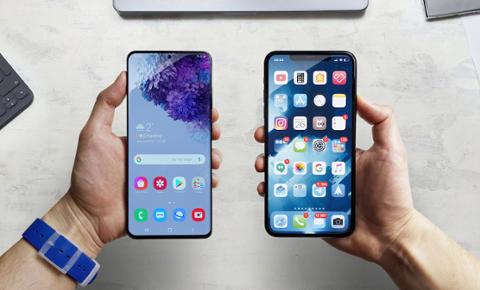Google has decided to lower its commissions on the Google Play storefront, from 30 percent to 15 percent for developers’ first $1 million in annual revenue. Beyond that $1 million benchmark, it will resume taking 30 percent.
Google’s move is widely viewed as an attempt to counter Apple, which announced in 2020 that it would take 15 percent of revenues from developers that generated less than $1 million per year via the App Store. Those developers that make more than $1 million through iOS apps are subject to Apple’s longtime 30 percent commission.
The new commission structure is scheduled to start July 1. In a corporate blog posting, Google claimed that the changes will reduce fees for 99 percent of the world’s Android developers. “These are funds that can help developers scale up at a critical phase of their growth by hiring more engineers, adding to their marketing staff, increasing server capacity, and more,” Sameer Samat, VP of Product Management, wrote in that posting.
“While these investments are most critical when developers are in the earlier stages of growth, scaling an app doesn’t stop once a partner has reached $1M in revenue—we’ve heard from our partners making $2M, $5M and even $10M a year that their services are still on a path to self-sustaining orbit,” Samat continued. “This is why we are making this reduced fee on the first $1M of total revenue earned each year available to every Play developer, regardless of size.”
Google’s move is yet another sign of the continuous push-pull between not only the Android and iOS ecosystems, but also those ecosystems and the third-party developers that build apps for them. Apple’s adjustments to developer revenues followed months of developer complaints that the company exerted too much control over the App Store while taking too much money. Over the past few years, major companies such as Basecamp and Epic Games (creator of the ultra-popular “Fortnite”) have taken very public issue with Apple’s commissions and restrictions. Google Play has faced some of the same criticisms.
Apple and Google (and many other large tech companies) are also trying to avoid additional scrutiny from the federal government, which has been making a lot of anti-trust noise over the past year or so. The Justice Department sued Google for “violating antitrust laws” in October 2020, and it’s not hard to see how the Google Play commission adjustment is potentially part of a larger goodwill campaign designed to boost Google’s image in the court of public opinion.
For those totally new to Android development, keep in mind that building apps for the platform is potentially lucrative, even if your apps don’t earn millions. According to Burning Glass, the median salary for Android development skills is $104,000 per year, rising to $128,000 for those with around a decade of Android-related experience. That’s roughly equivalent to those with iOS development skills, where the median salary is $99,000, rising to $128,000 for those who’ve been working with the platform for a decade-plus.
If you’re interested in building Android apps, Google offers similar development and training courses for Android (Java is the core language for Android development, although Google is aggressively pushing Kotlin as a replacement). The company also hosts an Associate Android Developer certification.


